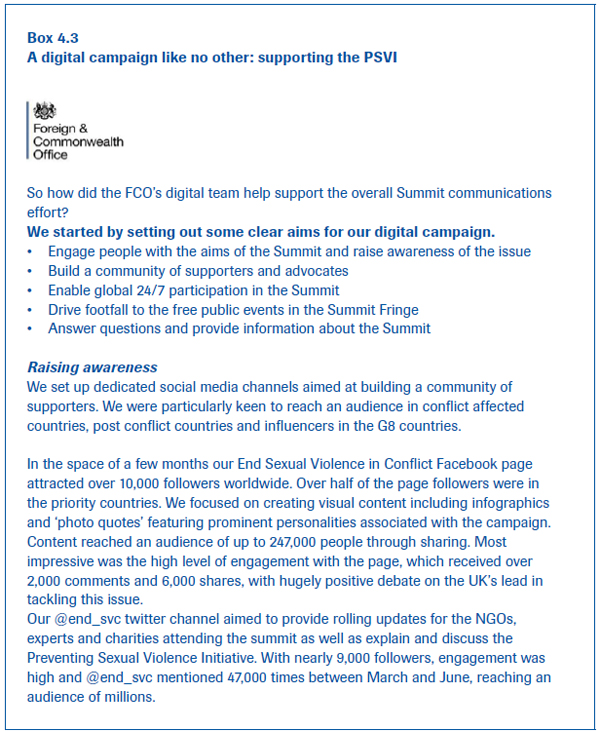Diplomacy in the Digital Age
- By Brian Hocking and Jan Melissen
 0 Comment(s)
0 Comment(s) Print
Print E-mail China.org.cn, October 26, 2015
E-mail China.org.cn, October 26, 2015
In April 2013, during the UK G8 presidency, G8 foreign ministers agreed a landmark Declaration on Preventing Sexual Violence in Conflict followed by the adoption of a UN Security Council resolution later that year. During the 68th session of the UN General Assembly, 155 countries endorsed the Declaration of Commitment to End Sexual Violence in Conflict, agreeing that there should be no peace agreements giving amnesty to those involved in rape. This was followed by the Global Summit to End Sexual Violence in Conflict held in London in June 2014. The overall aim here (see Box 4.3) was to build awareness of the issue and to enhance the network of stakeholders that had coalesced around the issue: 125 country delegations, NGOs such as Amnesty International, Care International and War Child, survivors and activists in London, together with UK embassies around the world organising 84 hours of events to generate global support for the Initiative. Central to the digital strategy was the 'hackathon' bringing together participants from around the world. The DiploHack event (see Box 4.4) built on earlier experiments by the Dutch and Swedish MFAs focused on a range of issues.
|
|




Go to Forum >>0 Comment(s)